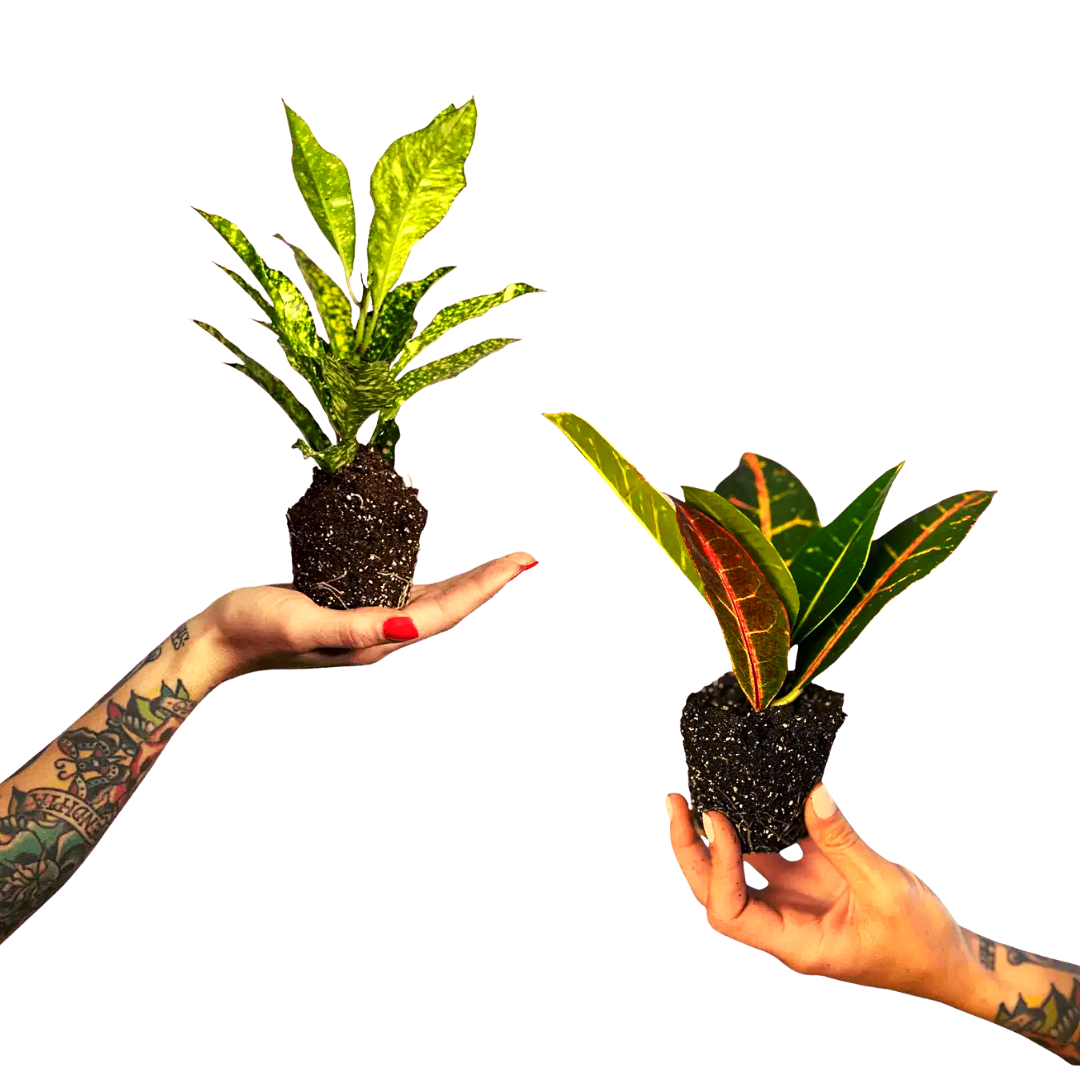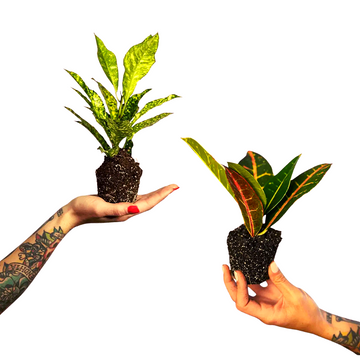Croton plants are primarily grown for their beautiful and colorful foliage, but they also offer some potential health benefits. Here are a few:
-
Air purification: Like many other houseplants, croton plants have been shown to help improve indoor air quality by removing harmful pollutants and toxins from the air.
-
Stress relief: Research has shown that spending time around plants can help reduce stress and anxiety levels. The bright, colorful foliage of croton plants can be especially uplifting and mood-boosting.
-
Aromatherapy: Some species of croton plants, such as Codiaeum variegatum, have a pleasant, fruity scent that can help freshen the air and create a calming atmosphere.
-
Traditional medicine: In some cultures, croton plants have been used for medicinal purposes to treat a range of ailments, including constipation, skin infections, and respiratory issues. However, it's important to note that many species of croton plants are toxic if ingested, so they should not be used for medicinal purposes without proper guidance from a healthcare professional.
While the potential health benefits of croton plants may be more anecdotal than scientific, there's no denying that these beautiful plants can add a touch of tropical flair to any indoor or outdoor space.
How To Handle These Small Tissue culture Plants.
Tissue culture is a effective technique to produce plants on larger scale and in more economic ways. This method is usually use for very rare species which grow very slowly. Tissue culture plants, also known as in vitro plants, are produced in a laboratory using a technique that involves growing plants from small tissue samples. These plants are typically sold in small pots and require specific care to ensure their survival. Here are some tips on how to care for tissue culture plants:
-
Acclimatization: When you first receive your tissue culture plant, it's essential to acclimatize it to its new environment slowly. Place the plant in a shaded spot for the first few days and gradually move it to a brighter location as it adjusts to its new home.
-
Watering: Tissue culture plants have a delicate root system and require careful watering. Allow the soil to dry out slightly between watering, and ensure the pot has adequate drainage to avoid waterlogged soil.
-
Light: Most tissue culture plants prefer bright, indirect sunlight. Avoid placing them in direct sunlight, which can scorch the leaves.
-
Humidity: Tissue culture plants often require higher humidity levels than typical houseplants. Consider using a humidifier or placing a tray of water near the plant to increase humidity.
-
Fertilization: Tissue culture plants require regular fertilization to thrive. Use a balanced fertilizer every two weeks during the growing season.
-
Repotting: As your tissue culture plant grows, it may require repotting. Use a well-draining soil mix, and be gentle when handling the delicate roots.
-
Pest control: Keep an eye out for common houseplant pests like spider mites or aphids, which can quickly infest tissue culture plants. Regularly check the plant for signs of infestation and treat as necessary.
Why Budsnblush















